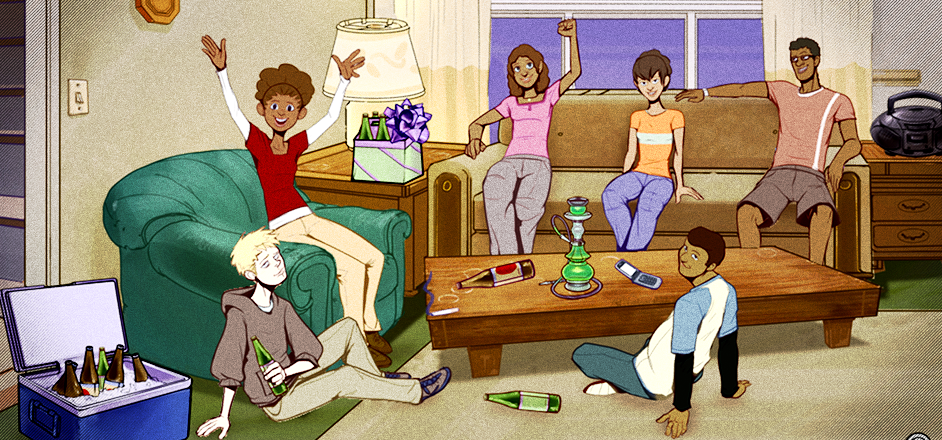Back in my day, the standard sex ed class was a powerpoint slide of herpes-covered genitals and bloody scenes of women giving birth.
You’d sit in the back of the class, refuse to raise your hand to ask embarrassing questions and giggle every time someone said “penis.”
However, Yale researchers might’ve created a revolutionary new way to offer sex education. They’ve developed a role-playing video game called PlayForward: Elm City Stories, where teens can learn how to navigate real world scenarios involving sex, drugs and alcohol.
The study’s findings, published last month in the Journal of Medical Internet Research, revealed how effective a video game can be in improving youngsters’ knowledge and attitudes about risky adult behaviors.

Project director Dr. Kimberly Hieftje oversaw the project from start to finish. She worked together with minority teens — the game’s target audience — to develop the game so that it looked realistic and reflected the real situations today’s kids are dealing with.
“Your character starts in 7th grade and goes all the way through 12th grade,” Dr. Kimberly Hieftje tells Rooster.
“It starts out pretty easy," she says. "You’ll face scenarios where you have to decide whether or not you’ll participate in vandalism or jump the gate to get into a public pool after hours.
“You’ll have a friend over at your house who tries to convince you to take one of grandmas pills or help sell the pills around school. You’ll have the choice to play 7 minutes in heaven with a kid who’s got a really nasty cold sore.”

The game might sound like a cake-walk, but kids aren’t able to coast through it without making mistakes.
“It’s set up so that you always make the poor decision first,” Dr. Hieftje explains. “You have to take grandma’s pills and try to sell them at school. You have to have sex without a condom. You need to gain enough skill points to go back and make a better choice.”
The game designers wanted kids to experience all the negative consequences of the game in a safe way.
At any point, a player can also fast-forward to see what their character’s life looks like at age 30, based on the decisions they’ve made. As the game progresses, the outcomes become more severe.
For example, your character can experiment with drugs or alcohol, and even get wasted and have a one-night-stand.
In one scenario, your character wakes up in the morning without any idea what you did the night before, and you have texts from a random girl you can’t remember.
Your character can also get pregnant or contract an STD. In another scenario, your character’s friend is exposed to HIV, and you have to convince them to go to the nurse and get tested.
Your character can drop out of high school and end up without a career. The sincere hope is that if kids try out these decisions in the game and recognize the consequences, they’ll know better than to try it out in real life.

The researchers’ findings indicate that kids are responding to the game exactly as they’d hoped. The team observed 333 participants, ages 11-14, who played either PlayForward or a control game on iPads for six weeks, then followed the teens for a year to assess their sexual health attitudes, knowledge, intention to initiate sex and sexual activity.
“We didn’t see any difference in when kids decided to initiate sex,” Dr. Hieftje says. Both the PlayForward group and the control group participants weren’t having any sex a year after the initial experiment.
However, the PlayForward teens showed significantly greater attitudes and knowledge of sexual health.
“They better understood the importance of wearing condoms and using contraceptives,” Dr. Hieftje explains. “They had better knowledge around HIV, like how to contract it and how to prevent it, or how alcohol can play into sexual risk.”
In the future, Dr. Hieftje hopes to continue using PlayForward as a tool to tackle smoking, HIV testing and counseling, and even sexual consent.
“The game allows kids to practice saying no, thinking through things, and seeing the consequences without them actually happening,” she says. “There’s really no limit to the incredible things it can do.”



Leave a Reply